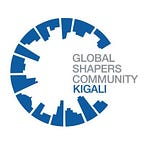The Role of Youth in realizing Rwanda’s Vision 2050
Kigali Shapers’ Twumve Twumve Series: Shaping the Future of Rwanda, 2050 & Beyond
On the 26th of September 2017, Prime Minister Edouard Ngirente presented the 7 Year Government Programme: A National Strategy for Transformation (NSTP). The plan outlines the new government’s economic, social, and governance related plans. Famous for its detail oriented public policy, Rwanda’s government is also currently drafting Vision 2050 (to replace Vision 2020) and each ministry has developed their sector strategic plans, which lay out how each sector will contribute to the NSTP.
The Shapers are dedicating the signature monthly event Twumve Twumve to discussing the NSTP and the future of key sectors as Rwanda continues to grow. The next monthly events will be on: Education & 21st Century Workforce, the Future of Industry, Realising One Market for Africa, Rwanda’s Urbanisation & Infrastructure, The Future of Industry, Agriculture, and Healthcare.
On September 28th, this series of talks was kicked off with the conversation themed “Challenge Us: The Role of Youth in realizing Rwanda’s Vision 2050”. The Shapers were grateful to welcome Benoit Ngabonziza, Director of Youth Economic Empowerment at the newly created Ministry of Youth, and Ephraim Rwamwenge, founder and CEO of RWA Business Group, as the distinguished panel. The focus quickly centered around a promise the new Prime Minister had made two days earlier: The creation of 1.5 million new jobs until 2024.
According to a recent article in the New Times, referencing a press conference held by the director general of the National Institute of Statistics of Rwanda (NISR) for the publication of the Labor Force Survey 2017, currently, the Rwandan labour force is made up of 3.6 million people (above 16; not retired, ill or studying). Rwanda’s unemployment currently stands at 16.7% and youth unemployment at a staggering 21%. For those employed, almost 91% are employed in the informal sector and 45.9% in the agricultural sector. The NISR projects Rwanda’s population to increase to 16.9 million by 2032. The time to find scalable job creation tactics is now. It will take an engaged public sector, private sector, and individual citizens.
The conversation between the panelists and the questions posed by the engaged audience, covered a range of topics and brought to light the many nuances behind the figure “1.5 million” and the word “jobs”.
The audience encouraged the Ministry of Youth to ensure that equal focus is put on job creators and job takers, on formal and informal jobs, on preparing the youth for the job market and on adult training programs, on jobs for the academically educated as well as those with technical skills.
The Director of Youth Economic Empowerment, Ngabonziza, reaffirmed the Ministry’s commitment to ensure an enabling environment for youth. He added that the Ministry is putting together a program to match young entrepreneurs to accomplished business people for mentorship and coaching. This will complement an additional program to support initiatives in the creative industries as a means to continue to drive economic diversification and job creation.
Coming up next — Education and the 21st Century Workforce
Rwanda aims to become a globally competitive knowledge based economy. Being a largely young nation, education is playing a huge role in equipping the current and future workforce of the nation. In our next Twumve Twumve we will bring to the table key players in the education sector to engage and discuss some of the ways education can innovate and fast track meeting the demands of the marketplace.
How can more people move up the employment ladder, gain access to wage jobs, and even become job creators in their own right? How can those in informal jobs increase in their own productivity and the productivity of farms and family businesses?
What should the Ministry of Education be focusing on for the nation’s technical vocational training and tertiary education? What are some the ways it can improve curriculum adaptation to changing demands on the market. How can training, apprenticeship or mentorship programs be scaled?
Join the Kigali Global Shapers at the next Twumve Twumve to discuss Education and the 21st Century Workforce. You can sign up to the mailing list to receive an invite to this and any other Global Shapers events — http://eepurl.com/chryG1.
Feel free to tweet at @KigaliShapers with the hashtag #TwumveTwumve for topics you want raised during the Vision 2050 series.
-Frida Winkelmann, with contributions from Israel & Grace
